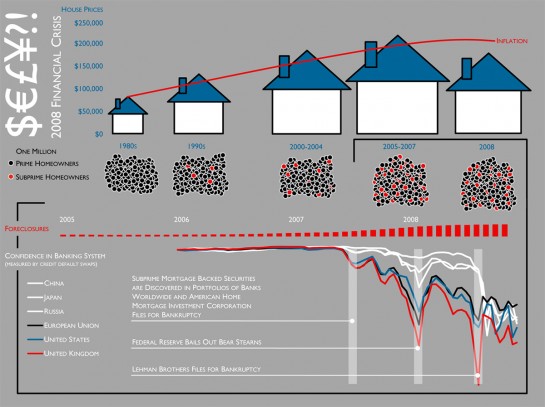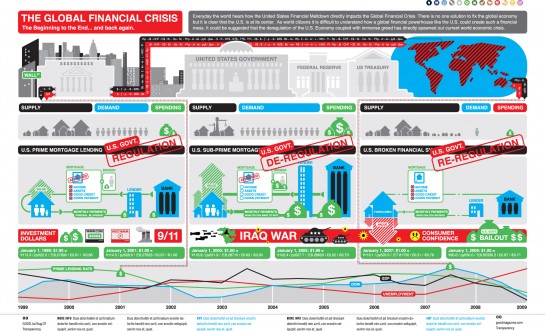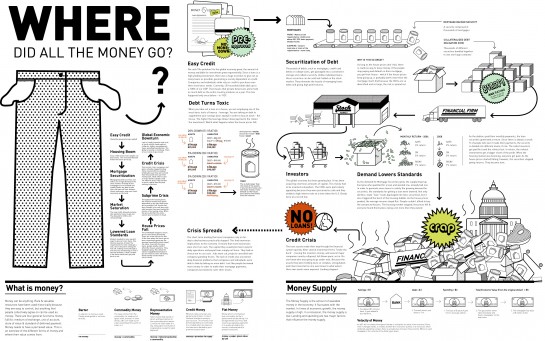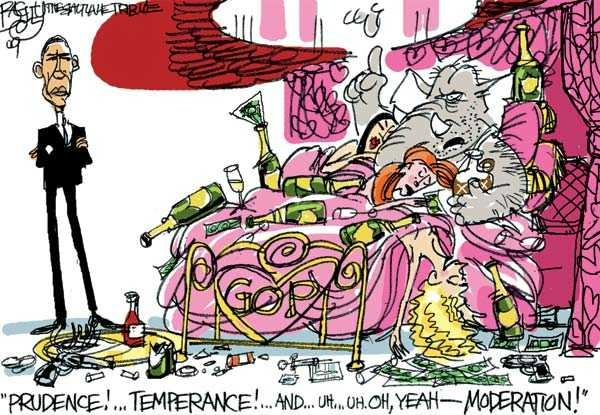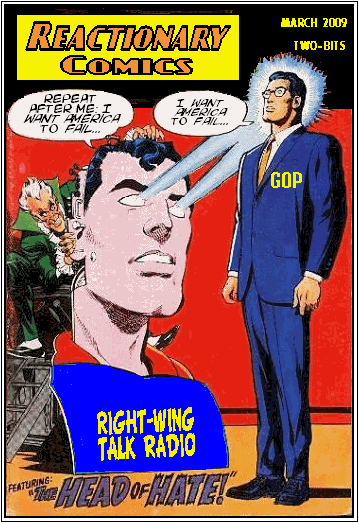
Monday, March 16, 2009
Obama's "enemy combatant" policy: following a familiar pattern
Rich Lowry, National Review, Friday:
Barack Obama has perfected a three-step maneuver that could never even be attempted by a politician lacking his rhetorical skill or cool cynicism.
First: Denounce your presidential predecessor for a given policy, energizing your party's base and capitalizing on his abiding unpopularity. Second: Pretend to have reversed that policy upon taking office with a symbolic act or high-profile statement. Third: Adopt a version of that same policy, knowing that it's the only way to govern responsibly or believing that doing otherwise is too difficult.
Dick Cheney, Sunday, with the incomparably reverent and vapid John King of CNN:
KING (to Cheney): Well, since taking office, President Obama has done these things to change the policies you helped put in place. He has announced he will close the Guantanamo Bay detention facility. He has announced he will close CIA black sites around the world, where they interrogate terror suspects. Says he will make CIA interrogators abide by the Army Field Manual, defined waterboarding as torture and ban it, suspend trials for terrorists by military commission, and now eliminate the label of enemy combatants.
I'd like to just simply ask you, yes or no, by taking those steps, do you believe the president of the United States has made Americans less safe?
CHENEY: I do. I think those programs were absolutely essential to the success we enjoyed of being able to collect the intelligence that let us defeat all further attempts to launch attacks against the United States since 9/11. I think that's a great success story. It was done legally. It was done in accordance with our constitutional practices and principles.
President Obama campaigned against it all across the country. And now he is making some choices that, in my mind, will, in fact, raise the risk to the American people of another attack. . . .
Now, I think part of the difficulty here as I look at what the Obama administration is doing, we made a decision after 9/11 that I think was crucial. We said this is a war. It's not a law enforcement problem. . . .When you go back to the law enforcement mode, which I sense is what they're doing, closing Guantanamo and so forth, that they are very much giving up that center of attention and focus that's required, and that concept of military threat that is essential if you're going to successfully defend the nation against further attacks.
Virtually from the first day Obama was inaugurated, right-wing polemicists have been alternatively accusing him of (a) radically reversing Bush/Cheney Terrorism policies, thereby ensuring that we're all about to be slaughtered by the Terrorists (see Cheney); and (b) fully embracing the Right's Terrorism approach, thereby vindicating the Bush administration's policies and exposing civil liberties criticisms of Bush as hysterical, disingenuous and wrong (see Lowry). That these two accusations are exact opposites -- mutually exclusive -- doesn't seem to bother them at all. Like a patient suffering from acute multiple personality disorder, the Right one minute accuses Obama of being a radical Leftist who wants to cuddle with Terrorists and the next minute accuses him of being Dick Cheney, Jr., eager to torture and detain everyone in sight.
If the last eight years have taught anything, it is that no rational person would listen to or take seriously anything Dick Cheney and his Lowry-like followers have to say. That they're motivated by everything other than the truth when criticizing Obama only bolsters that conclusion. But their ill motives and unbroken history of deceit doesn't mean that they're wrong in this case. And as much as one might prefer not to acknowledge it, it is becoming undeniably clear that -- at least in the realm of civil liberties, executive power and core Constitutional rights -- Lowry's description of Obama's "three-step maneuver" is basically accurate, and Cheney's fear-mongering lament that Obama is undoing his Terrorism policies is basically false.
* * * * *
Consider three key episodes from the last week just standing alone. On Friday, the Obama administration announced that it would no longer use the Bush-identified label "enemy combatants" as a ground for detaining Terrorist suspects, an announcement that generated headlines suggesting a significant change from the prior administration. But the following day, after reviewing the legal brief the administration filed (.pdf) setting forth its actual position regarding presidential powers of detention, here is how The New York Times's William Glaberson accurately described what was really done:
The Obama administration said Friday that it would abandon the Bush administration's term "enemy combatant" as it argues in court for the continued detention of prisoners at Guantánamo Bay, Cuba, in a move that seemed intended to symbolically separate the new administration from Bush detention policies.
But in a much anticipated court filing, the Justice Department argued that the president has the authority to detain terrorism suspects there without criminal charges, much as the Bush administration had asserted. It provided a broad definition of those who can be held, which was not significantly different from the one used by the Bush administration.
Bush's asserted power to detain as "enemy combatants" even those people who were detained outside of a traditional "battlefield" -- rather than charge them with crimes -- was one of the most controversial of the last eight years. Yet the Obama administration, when called upon to state their position, makes only the most cosmetic and inconsequential changes -- designed to generate headlines misleadingly depicting a significant reversal ("Obama drops 'enemy combatant' label") -- while, in fact, retaining the crux of Bush's extremist detention theory.
First Commercial Hemp Processing Plant In North America To Locate In Northumberland/Quinte West

 Stonedhedge Bio-Resources plans to build a hemp processing facility somewhere between Port Hope and Belleville, the first in North America. The facility, called an industrial hemp refiner, will process hemp for the building industry, specifically for use as insulation and construction concrete. The hemp-reinforced concrete will absorb CO2 for 200 years, says John Baker, President of Stonehedge.
Stonedhedge Bio-Resources plans to build a hemp processing facility somewhere between Port Hope and Belleville, the first in North America. The facility, called an industrial hemp refiner, will process hemp for the building industry, specifically for use as insulation and construction concrete. The hemp-reinforced concrete will absorb CO2 for 200 years, says John Baker, President of Stonehedge. Heartland hemp farming needs Iowa lawmakers’ help

BY DI EDITORIAL BOARD
A bipartisan group of Minnesota lawmakers is putting forth legislation to legalize the growth of cannabis, or hemp. The Industrial Hemp Development Act (HF 608) would provide licenses to qualified farmers for the cultivation of hemp, after passing background checks, of course. Iowa lawmakers must pay close attention to the progress of Minnesota's hemp act; its success or failure may signal how a similar act would fair here. Regardless of the reaction of our neighbors to the north, hemp production will dramatically change the face of agriculture in America, and Iowans need to be out ahead of this increasingly popular trend.
Seven states — Hawaii, West Virginia, Maine, Maryland, Montana, Kentucky, and North Dakota — have legalized hemp production; however, not one is producing the crop because of resistance from the U.S. Drug Enforcement Administration. Hemp farmers in North Dakota are granted licenses by the state, but they are required to obtain separate permits from the DEA. The agency has continually refused to accept applications, leading farmers in North Dakota to file a lawsuit against the federal government.
A common complaint among law-enforcement agencies at all levels of government is that monitoring acres of hemp for hidden pockets of marijuana would be next to impossible. This idea is, in fact, very reasonable, because hemp and marijuana are members of the same species, cannabis.
However, centuries of breeding have elicited distinctly different characteristics in the two plants. Marijuana contains much higher levels of tetrahydrocannabinol, or THC, the psychoactive agent, which induces a "high." Hemp, on the other hand, has such minuscule amounts of THC that it is unable to produce the same high. In fact, hemp contains another chemical, cannabidiol, which is increasingly used as an antipsychotic.
Despite the plants' botanical distinctions, their visual similarities are at the root of the problem. Interestingly enough, Minnesota researchers have developed a way to overcome the issues raised by law enforcement. George Weiblen, a University of Minnesota associate professor of plant biology, has established a method of DNA testing that is able to differentiate hemp from its doppelgänger. Using a DNA technique known as amplified fragment length polymorphism, Weiblen and a colleague are the first to undeniably distinguish hemp plants from marijuana plants.
So, if there is a way to discriminate between the two plants, what benefits could be harvested from the production of industrial hemp? Hemp is an industrial crop in every industrialized nation except the United States. Naturally, the U.S. imports more hemp and hemp products than any other industrialized nation. By growing the crop here, we could reap the reward of hemp's increasing popularity. The herb has been touted as a wonder plant for many reasons. Nearly every part of the plant is usable. Hemp can be used to produce paper, food, clothing, plastics, and even low-carbon concrete.
The advantages of hemp as a commercial crop have special significance for Iowans. While soybeans are composed of greater levels of actual protein, hemp seeds contain more digestible protein. Furthermore, because of its fast-growing nature, hemp crops produce more energy per acre of biodiesel or ethanol fuel than corn or any other food crop, and it is able to do so at a much lower cost and with noticeably less damage to the soil. Hemp is a hearty plant and can grow on all types of soil.
By growing hemp, it could be possible to use damaged, exhausted, or marginal soil, thus reclaiming unused or abandoned land.
Because industrial hemp production could compete with Iowa's two largest crops, it only makes sense to be out in front of the trend, leading the way, rather risking the consequences of watching that market develop without us. Industrial hemp would do much to facilitate the nation's growing desire for all things "green"; an acre of hemp produces as much paper as four acres of trees, Europeans are perfecting a biodegradable plastic made entirely of hemp, and hemp seeds are an impressive source of protein as well as essential amino acids. Environmental benefits aside, the economic advantages of producing hemp in Iowa are certainly worth considering.
http://www.cannabisnews.org/?p=2311New Drug Czar Gil Kerlikowske brings Northwest lessons
As "drug czar" at the Office of National Drug Control Policy, Seattle Police Chief Gil Kerlikowske should offer some of the lessons learned in the Pacific Northwest. Among them: Allow needle exchanges and the use of medical marijuana, offer low-level offenders drug treatment as an alternative to prison and follow more of a harm-reduction policy in general.

CONGRATULATIONS to Seattle Police Chief Gil Kerlikowske for being chosen to head the Office of National Drug Control Policy. Along with the high federal appointments for King County Executive Ron Sims and former Gov. Gary Locke, Kerlikowske's appointment gives hope that experience from this part of America will influence national policy.
With Sims, that experience is in public housing, which has a better record here than in the big cities of the Midwest and East. With Locke, it is trade with Asia, which has given this region a forward-looking view of global competition. With Kerlikowske, it is a willingness to think critically about the war on drugs.
He comes from a state whose citizens voted not to enforce the federal law if marijuana is used as medicine. He also comes from a city whose people voted to make marijuana possession the lowest priority for police work.
Kerlikowske didn't support that measure, but he learned to live with it. His police force has been tolerant at Seattle's annual Hempfest.
Concerning the stronger drugs, Kerlikowske has tolerated needle-exchange programs. He has supported drug court, which offers treatment to low-level offenders as an alternative to prison. He has a son who has been arrested for drugs, so he has seen the drug war from that angle, too.
Kerlikowske is not a legalizer, nor is President Obama. Federal agents will still interdict drugs coming into the United States and attack trafficking internally.
But under Kerlikowske there should be more respect for medical science, psychology and economics — and of the limitations of police and prisons.
http://seattletimes.nwsource.com/html/editorialsopinion/2008849773_edita13drugczar.html
The Drug War: An Old Mission for the Pentagon
by Jacob G. Hornberger
Visual Guides to the Financial Crisis
Let's start things off with some comprehensive guides to the financial crisis. Several of these are from GOOD magazine's recent contest to make sense of it all.
2008 Financial Crisis by Carolyn Aler and Sam Conway
A Visual Guide to the Financial Crisis by Jess Bachman
Jess from WallStats put this together for the Mint blog. I'm pretty sure they have him on retainer.
The Global Financial Crisis by Cipher 13
Where Did All the Money Go? by Emilia Klimiuk
The Culture Warriors Get Laid Off

When Barack Obama ended the Bush stem-cell policy last week, there were no such overheated theatrics. No oversold prime-time address. No hysteria from politicians, the news media or the public. The family-values dinosaurs that once stalked the earth — Falwell, Robertson, Dobson and Reed — are now either dead, retired or disgraced. Their less-famous successors pumped out their pro forma e-mail blasts, but to little avail. The Republican National Committee said nothing whatsoever about Obama's reversal of Bush stem-cell policy. That's quite a contrast to 2006, when the party's wild and crazy (and perhaps transitory) new chairman, Michael Steele, likened embryonic stem-cell research to Nazi medical experiments during his failed Senate campaign.
What has happened between 2001 and 2009 to so radically change the cultural climate? Here, at last, is one piece of good news in our global economic meltdown: Americans have less and less patience for the intrusive and divisive moral scolds who thrived in the bubbles of the Clinton and Bush years. Culture wars are a luxury the country — the G.O.P. included — can no longer afford.
Not only was Obama's stem-cell decree an anticlimactic blip in the news, but so was his earlier reversal of Bush restrictions on the use of federal money by organizations offering abortions overseas. When the administration tardily ends "don't ask, don't tell," you can bet that this action, too, will be greeted by more yawns than howls.
Once again, both the president and the country are following New Deal-era precedent. In the 1920s boom, the reigning moral crusade was Prohibition, and it packed so much political muscle that F.D.R. didn't oppose it. The Anti-Saloon League was the Moral Majority of its day, the vanguard of a powerful fundamentalist movement that pushed anti-evolution legislation as vehemently as it did its war on booze. (The Scopes "monkey trial" was in 1925.) But the political standing of this crowd crashed along with the stock market. Roosevelt shrewdly came down on the side of "the wets" in his presidential campaign, leaving Hoover to drown with "the dries."
Much as Obama repealed the Bush restrictions on abortion and stem-cell research shortly after pushing through his stimulus package, so F.D.R. jump-started the repeal of Prohibition by asking Congress to legalize beer and wine just days after his March 1933 inauguration and declaration of a bank holiday. As Michael A. Lerner writes in his fascinating 2007 book "Dry Manhattan," Roosevelt's stance reassured many Americans that they would have a president "who not only cared about their economic well-being" but who also understood their desire to be liberated from "the intrusion of the state into their private lives." Having lost plenty in the Depression, the public did not want to surrender any more freedoms to the noisy minority that had shut down the nation's saloons.
http://www.nytimes.com/2009/03/15/opinion/15rich.html?_r=1&em
The Size of Derivatives Bubble = $190K Per Person on Planet
By Tom Foremski
More must read financial analysis from DK Matai, Chairman of the ACTA Open.
The Invisible One Quadrillion Dollar Equation -- Asymmetric Leverage and Systemic RiskAccording to various distinguished sources including the Bank for International Settlements (BIS) in Basel, Switzerland -- the central bankers' bank -- the amount of outstanding derivatives worldwide as of December 2007 crossed USD 1.144 Quadrillion, ie, USD 1,144 Trillion. The main categories of the USD 1.144 Quadrillion derivatives market were the following:
1. Listed credit derivatives stood at USD 548 trillion;
2. The Over-The-Counter (OTC) derivatives stood in notional or face value at USD 596 trillion and included:
a. Interest Rate Derivatives at about USD 393+ trillion;
b. Credit Default Swaps at about USD 58+ trillion;
c. Foreign Exchange Derivatives at about USD 56+ trillion;
d. Commodity Derivatives at about USD 9 trillion;
e. Equity Linked Derivatives at about USD 8.5 trillion; and
f. Unallocated Derivatives at about USD 71+ trillion.
Quadrillion? That is a number only super computing engineers and astronomers used to use, not economists and bankers! For example, the North star is "just" a couple of quadrillion miles away, ie, a few thousand trillion miles. The new "Roadrunner" supercomputer built by IBM for the US Department of Energy's Los Alamos National Laboratory has achieved a peak performance of 1.026 Peta Flop per second -- becoming the first supercomputer ever to reach this milestone. One Quadrillion Floating Point Operations (Flops) per second is 1 Peta Flop/s, ie, 1,000 Trillion Flops per second. It is estimated that all the data found on all the websites and stored on computers across the world totals more than One Exa byte of memory, ie, 1,000 Quadrillion bytes of data.
Whilst outstanding derivatives are notional amounts until they are crystallised, actual exposure is measured by the net credit equivalent. This is normally a lower figure unless many variables plot a locus in the wrong direction simultaneously. This could be because of catastrophic unpredictable events, ie, "Black Swans", such as cascades of bankruptcies and nationalisations, when the net exposure can balloon and become considerably larger or indeed because some extremely dislocating geo-political or geo-physical events take place simultaneously. Also, the notional value becomes real value when either counterparty to the OTC derivative goes bankrupt. This means that no large OTC derivative house can be allowed to go broke without falling into the arms of another. Whatever funds within reason are required to rescue failing international investment banks, deposit banks and financial entities ought to be provided on a case by case basis. This is the asymmetric nature of derivatives and here lies the potential for systemic risk to the global economic system and financial markets if nothing is done.
Let us think about the invisible USD 1.144 quadrillion equation with black swan variables -- ie, 1,144 trillion dollars in terms of outstanding derivatives, global Gross Domestic Product (GDP), real estate, world stock and bond markets coupled with unknown unknowns or "Black Swans". What would be the relative positioning of USD 1.144 quadrillion for outstanding derivatives, ie, what is their scale:
1. The entire GDP of the US is about USD 14 trillion.
2. The entire US money supply is also about USD 15 trillion.
3. The GDP of the entire world is USD 50 trillion. USD 1,144 trillion is 22 times the GDP of the whole world.
4. The real estate of the entire world is valued at about USD 75 trillion.
5. The world stock and bond markets are valued at about USD 100 trillion.
6. The big banks alone own about USD 140 trillion in derivatives.
7. Bear Stearns had USD 13+ trillion in derivatives and went bankrupt in March. Freddie Mac, Fannie Mae, Lehman Brothers and AIG have all 'collapsed' because of complex securities and derivatives exposures in September.
8. The population of the whole planet is about 6 billion people. So the derivatives market alone represents about USD 190,000 per person on the planet.
http://www.siliconvalleywatcher.com/mt/archives/2008/10/the_size_of_der.php
Wal-Mart should take on Bank of America
By DAVID REILLY
The economy is in an awful jam. Consumers and businesses need access to credit. Many banks, starved of capital, aren't up to the task. Nor is the shadow banking system, which offered an alternative source of credit from money-market, bond and hedge funds, but has now dried up.
One suggested out: Create new banks that wouldn't be saddled with the soured loans and toxic assets constraining other lenders.
That's easier said than done. Even with government funds, most start-ups couldn't muster the technology, infrastructure and management expertise to form the kind of big, national bank that could quickly have an impact.
Most, that is, except for Wal-Mart. The retailing giant could probably get a big bank up and running pretty easily. If, that is, its opponents put the economy's needs ahead of their own interests.
Two years ago next week, Wal-Mart withdrew its application to create an industrial loan company, a kind of banking operation, in the face of opposition from the Federal Deposit Insurance Corp., rival banks and the wider anti-Wal-Mart lobby.
Much of the protest was rooted in fears that Wal-Mart's application was a first step toward creating a real bank, as opposed to an entity meant to process payments from customers and suppliers. From there, opponents argued, Wal-Mart would soon crush competitors, especially community banks.
Times have changed. The economic crisis demands radical solutions. Giving Wal-Mart a banking license may be one.
A Modest Proposal: Limited Purpose Banking
 In case you hadn't noticed, the foxes are still guarding the banking henhouse. The only change: President Obama is reducing how many hens the foxes can kill while on guard duty.
In case you hadn't noticed, the foxes are still guarding the banking henhouse. The only change: President Obama is reducing how many hens the foxes can kill while on guard duty.
The foxes, of course, are the financial wizards whose leadership almost entirely wiped out the capital of the banking system.
The old system relied on trusting people who lied and cheated. They are still running the show. They will lie and cheat again. We will be called upon to pay the bill, again.
We need a new financial system. We need limited-purpose banking. It should be transparent, trustworthy and unsinkable. The key is to limit banks to their legitimate purpose. Not gambling, but financial intermediation, connecting savers to investors and lenders to borrowers.
Is this possible? Yes, it already exists in the only part of old system still above water – the mutual fund industry. Mutual fund companies like Fidelity, Vanguard, and TIAA-CREF stuck to their knitting. They didn't leverage themselves 30-to-1 and promise things they could never deliver. These companies didn't gamble with their own fortunes or the nation's future. Instead, they bought mortgages, stock, real estate, and other securities. They packaged these assets in mutual funds. And they sold the mutual funds to the public.
The public, not the mutual fund companies, held the securities and took the risk. In so doing, the fund companies ensured their solvency and prevented runs on their funds. They avoided the double jeopardy of conventional banking--- financial shipwrecks that drown both the ships and the public. The one revealing exception was money market funds. There the mutual fund companies promised something they couldn't deliver – that their money market funds would never lose money.
Mutual fund companies also have other safeguards. They use third-party custodians to hold the securities purchased by their mutual funds. This precludes a Bernie Madoff or an Allen Stanford from selling claims to securities they neither owned nor purchased. Mutual fund companies divulge their investments. Whether the assets in their mutual funds are toxic or nutritional, the mutual fund companies say what they hold.
The two things mutual funds can't guarantee are the prices of the securities they purchase or the quality of the securities themselves. This can be improved (but not guaranteed) by compelling disclosure.
The compulsion must come from Uncle Sam. Sam needs to do what we proposed a year ago--- set up a Federal Financial Authority (FFA) to verify, fully disclose, and rate securities, as well as audit the Fortune 500 companies. As we've seen, our private, insider-rating agencies are not to be trusted. Neither is insider-accounting.
Swiss banks agree to end 300 years of secrecy
Wealthy individuals and companies will no longer be able to hide their riches in Zurich bank accounts after Switzerland bowed to international pressure to end the era of "no questions asked" banking.
It will join Liechtenstein, Luxembourg and Andorra, which also agreed this week to share limited information on their accounts on request from foreign governments, ending 300 years of obstinate banking secrecy. The move is a fillip to Gordon Brown's attempts to clamp down on tax havens at next month's G20 meeting. On the more critical issue of stimulating the world economy, however, the rift between Britain and the US and the rest of Europe widened as the G20 finance ministers met in Horsham, West Sussex, to discuss how to react.
European leaders, including Angela Merkel, the German Chancellor, hardened their position against calls by Gordon Brown for other countries to pump more money into their economies. Mr. Brown was backed by Timothy Geithner, the US Treasury Secretary, who described injections worth 2 per cent of gross domestic product as "reasonable". But the IMF estimates that only Australia, China, Spain, Saudi Arabia and the US will do this.
Japan, too, weighed in behind an Anglo-American push for more tax cuts and government spending to bolster economies.
Ms. Merkel, who met Mr. Brown at Chequers yesterday, said that she did "not think much" of a new package of measures after agreeing a common position with President Sarkozy of France against stimulus spending but in favour of tighter financial regulation. Robert Zoellick, President of the World Bank, also warned that a one-off injection of spending and tax cuts would not be enough and further stimulus would be needed next year.
"If you don't take on the banking issue, the stimulus is just like a sugar high. It pushes some energy into the system. But then you get the let down unless you reopen the credit markets," he said.




